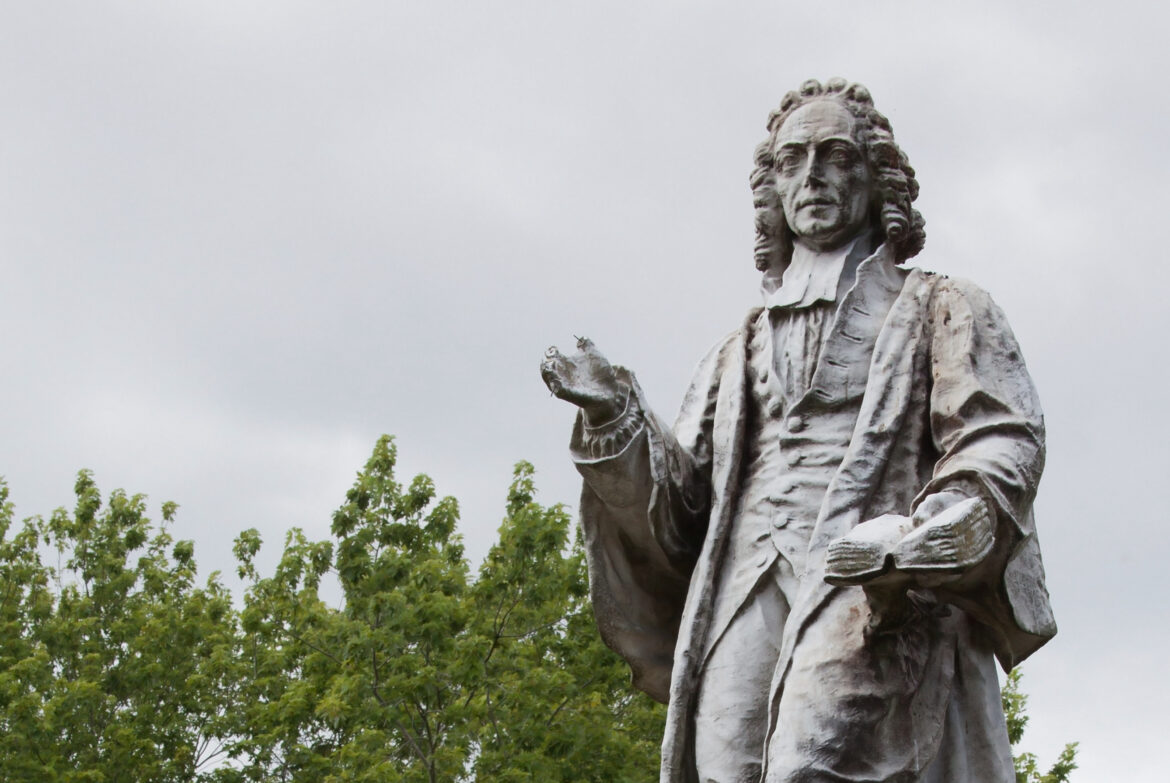Widely recognized as the unrivaled father of English hymnody, Isaac Watts wrote more than a thousand hymns and psalm settings including O God, Our Help in Ages Past, When I Survey the Wondrous Cross, Alas and Did My Savior Bleed, Jesus Shall Reign, How Sweet and Awful Is the Place, and Joy to the World. Church musician Mike Cosper has aptly called him, “the reformer you know by heart but perhaps not by name.”[1]
In addition to being a prolific poet, Watts was a scholar of wide reputation. A contemporary of Samuel Johnson, Cotton Mather, Isaac Newton, George Whitefield, John Locke, John and Charles Wesley, Daniel Defoe, and Jonathan Edwards, Watts was a successor to the great John Owen at the Mark Lane Chapel, just around the corner from Tower Hill and the All Hallows spire where Samuel Pepys watched in horror as the Great Fire of London devastated the city. He was a gifted preacher, a careful theologian, and an ardent apologist. He published more than two dozen theological treatises; essays on psychology, astronomy, and philosophy; three volumes of sermons; the first children’s hymnal; seven pioneering works on educational pedagogy; and a treatise on logic that served as the standard university text at Oxford, Cambridge, and Harvard for generations.
That he was quoted by Charles Dickens in David Copperfield, by Herman Melville in Moby Dick, by Lewis Carroll in Alice’s Adventures in Wonderland, by Charles Haddon Spurgeon in The Treasury of David, and by a host of others in classic literature across a wide range of genres is a testament to how large, how deep, and how wide his ongoing legacy has been.
He was born into a Puritan home in 1674 when fierce persecutions against dissenters and non-conformists harried faithful families into perilous penury and travail. His father was a respected schoolmaster and deacon who spent years away from the family in prison and exile. But the family’s faith never flagged despite their many adversities. Indeed, his father’s steadfast love, piety, and courage inspired in young Isaac a lifelong deep devotion.
Watts was a prodigy, demonstrating early genius: he began learning Latin by the age of four, Greek at nine, and Hebrew at thirteen. When Southampton, his hometown, took in a surge of Huguenot refugees, he decided he needed to add French to his already prodigious linguistic arsenal. It was his mastery of language that enabled him to begin extemporaneous compositions of poetry and hymns as a young child.
Recognizing his precocious intellectual gifts, several prominent Southampton merchants offered to send him to Oxford or Cambridge with generous scholarships. But because this would have required transfer into the authorized Anglican communion, Watts, though deeply grateful, deferred, choosing instead to remain faithful to his Puritan upbringing. He decided to continue his advanced studies at a small non-conformist college in London, the Stoke Newington Academy.
Concluding his coursework in 1696, Watts followed in his father’s footsteps and became a tutor to the children of a wealthy Puritan family in the city. At the same time, he attached himself to the Mark Lane Chapel where he was soon asked to regularly fill the pulpit. By 1702, the congregation called him to assume pastoral duties full-time. He was just 28 years old, but already he was gaining a reputation as a brilliant communicator of Gospel truth.
Avoiding the prevailing temptations of both theatrical ornateness and debased crassness, his rhetorical phrasing, syntax, and vocabulary were unerringly elegant but always understandable, richly imaginative yet unapologetically simple, substantively reverent, incisive, and theological, while simultaneously accessible, personal, and practical.
“Where the flights of faith and love are sublime,” he wrote, “I have often sunk the expressions within the reach of an ordinary Christian. I have used words of greater latitude and comprehension, suited to the general circumstances of men.” Thus, according to Samuel Johnson, “He was the first who taught the Puritan Dissenters to write and speak like other men, by showing them that elegance might consist with piety.”
It was his regular habit to compose a new hymn or psalm setting for every sermon he preached. As a result, his collected works are a treasure trove of rich Scriptural instruction, incisive theological analysis, cogent topical apologetics, and penetrating Gospel application.
His carefully worked-out theology of language—and its implications for grammar, logic, and rhetoric, for worship, discipleship, and pastoral care, for theology, apologetics, and evangelism, for beauty, goodness, and truth—enabled Watts to articulately bemoan the devastating effects of the fall, where “sins and sorrow grow” and “thorns infest the ground.” But he also joyously celebrated the fact that Jesus has come. Indeed, “He rules the world with truth and grace;” and not in just a few isolated corners, oh no: “fields and floods, rocks, hills, and plains” all bear testimony to the fact that “He makes His blessings flow as far as the curse is found.”
Watts could not have said it any more simply; nor could he have said it any more profoundly.
Though he battled ill-health for most of his life, he would work tirelessly for the better part of the next half century writing, teaching, composing, and preaching. At his death in 1748, he left a remarkable legacy that genuinely embodied both resistance and reformation.
[1] Mike Cosper, “Isaac Watts: The Reformer You Know By Heart But Not By Name,” The Gospel Coalition, April 6, 2011.

